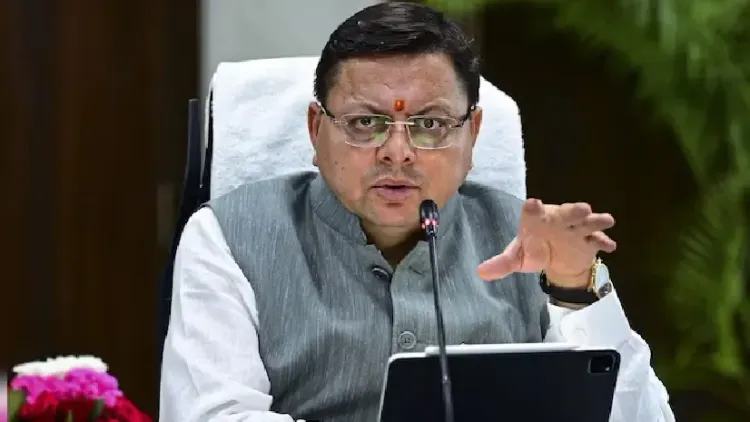Uttarakhand UCC Endorsed: Marriage Registration and Live-In Provisions Maintained; Personal Law Conflicts Omitted

Synopsis
Key Takeaways
- Uttarakhand government approved UCC rules.
- Controversial proposals for personal law dispute resolution omitted.
- Marriage registration and live-in provisions retained.
- Public consultations reportedly disregarded.
- Implementation expected on January 26, 2024.
New Delhi, Jan 20 (NationPress) The Uniform Civil Code (UCC) regulations sanctioned by the Uttarakhand government on Monday have excluded the contentious proposals aimed at establishing a distinct mechanism for addressing conflicts linked to personal laws.
The guidelines suggested by the Shatrughan Singh Committee for the UCC were initially presented to the Chief Minister on October 18, 2024, and have undergone several modifications.
The exhaustive 400-page document has been streamlined to less than 100 pages, retaining only the sections related to marriage registration, divorce, inheritance, and live-in relationships, as per sources.
Consequently, the updated UCC regulations approved by the Uttarakhand government on Monday no longer encompass the suggestion for a separate mechanism to resolve personal law disputes, sources indicated.
The implementation of the UCC is anticipated to be announced on January 26, as the government awaits the conclusion of local body elections currently under the model code of conduct.
This initiative has sparked questions regarding its alignment with public interest. The reported amendments to the original regulations, particularly the exclusion of judicial processes for resolving personal disputes, have raised concerns. These alterations were reportedly made following guidance from the Law, Justice and Legislative Affairs department, which oversees the state's judicial framework.
A significant concern is the alleged dismissal of public suggestions voiced during UCC consultations, where citizens expressed the necessity for enhancements in judicial processes, sources stated.
The choice to disregard these recommendations raises doubts about whether the UCC's execution genuinely serves the public interest, according to sources.
Moreover, sources question the purpose of public consultations if their feedback was to be overlooked. They also inquire about the rationale behind the Committee's formation if its extensive contributions were ultimately disregarded. Notably, the Act was developed based on a report from a government-appointed panel led by retired Supreme Court judge Ranjana Prakash Desai.
The five-member panel engaged in numerous public meetings and consultations with various stakeholders across the state to compile the report.
Experts speculate whether the entire process was merely a formality intended to appease public sentiment without enacting real reform.
The recent suicide of Atul Subhash, which cast a pall over the judicial framework, has once again underscored the urgent need for reform.
With the UCC designed to tackle these pressing issues, the alleged rejection of certain reforms raises a pivotal question: will the public receive genuine justice, or will the existing climate of harassment persist?









